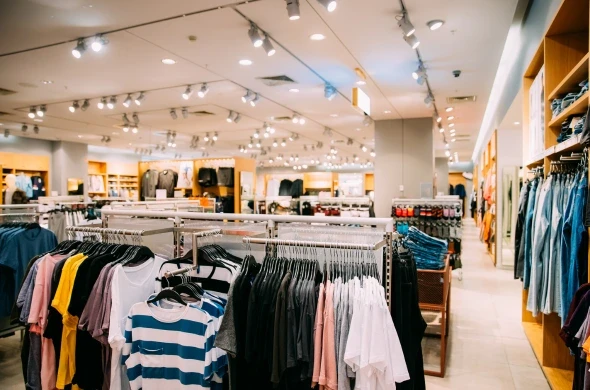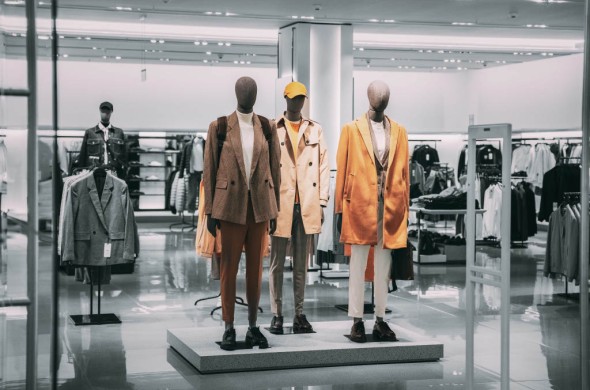It’s surprising to envision how different the experience of shopping is now compared to that which our parents and their parents had before. Not only are products more robust and advanced in scope, but our capabilities in buying them have developed just as much in the same amount of time. From the rise of e-commerce to the spread of influencers and mass digital media, the retail landscape has changed how we’ve come to understand our relationship with products and services.
Whether you’re an entrepreneur, business leader, or marketing expert, it remains imperative that you stay on top of the rapid-fire changes that continually pop up in our evolving business environment.
With this in mind, we will go through the newest and most influential generation to affect retail now, Generation Z (or just Gen Z). This article will explore what exactly makes up a Gen Z consumer, their attitudes towards retail, as well as the broader developments in retail that stem from their overall influence on the market.
Who is the Gen Z?
Generation Z, or simply Gen Z, is a subsection of today’s youth that are born between 1999 and early 2000s, just after Millennials, another popular consumer group. The Gen Z are incredibly tech-savvy, open-minded, as well as socially responsible regarding their individual actions (something they share with the latter half of their millennial cousins).
But more than just coming after millennials chronologically, Gen Z is actually leading the charge to replace millennials as the primary tastemakers within fashion, technology, and even general retail. If you’re wondering which group sets the trends now, look no further than youths aged 16 to 21 who are now dominating digital spaces and trend forecasts.
What’s happening with Gen Z and retail?
With millennials turning almost 40 this year, Gen Z begins to hold more and more sway over what is deemed on-trend and on-demand in this very digital-motivated retail business environment. From Tiktok Dances to Instagram stories, Gen Z’s command of these media spaces has put them on the pedestal for brands to target as a way of connecting towards their many high-spending peers.
But beyond their digital mastery, Gen Z’s characteristics on what they buy has also placed them in a very different league compared to the generations that preceded them. Often, Gen Z shoppers look towards purchases made towards causes and beliefs that they identify with. 6 in 10 of Gen Z shoppers are more conscious about the brands that they choose to support, so key messaging and communication is highly important, as well as an understanding of what kind of experiences and life connections your brand represents.
Indeed, FOMO, or Fear-Of-Missing-Out, is a key driver and concern for many Gen Z consumers in today’s pandemic hit the world. Hence many in this young generation would prefer to give their cash towards experiences (or products that simulate that same experience) that best emulate their lifestyles. Missing out on the latest trend or event just feels all too real for the Gen Z mind.
Changing how we approach consumer retail marketing
With all of the nuances that come with how Gen Z shoppers approach what they buy, it’s important to also understand the different ways their behaviors and preferences affect how retailers have adjusted their retail strategies.
Along with the burgeoning influence of Gen Z, there is also a myriad of other developments that stand to change how retail is executed and planned for in the years to come.
The subconscious dimension
An increasing factor to consider in today’s mass digital awareness landscape is the many vying brands and firms that are entering the market at faster speeds. This means these very same brands need to anticipate consumer needs faster than their competitors. While fortune-telling may still be far off into the future, today’s eCommerce market has made it possible to use a vast array of data analytics to have relatively accurate prescriptive marketing techniques to better meet the needs of consumers as they discover it themselves.
Because of these added retail capabilities, the eCommerce marketplace has seen a massive increase in popularity, especially with the youth. Forbes estimates that roughly 80% of young Arabs are currently shopping online, fuelling the UAEs further plans to modernize different payment methods and approaches to better personalize online experiences.
Brand adaptation through elasticity
There remain many changes occurring in today’s retail environment that go beyond purchasing behavior. From COVID pandemic restrictions to supply line issues, the operational and logistical issues that pervade businesses today have required smart business leaders and marketers to adjust smartly and efficiently. Indeed, UAE has renewed its focus towards shortening and diversifying its many supply lines and processes.
Beyond this, marketers and managers need to be ready to shift their operations accordingly, building structures that remain flexible enough for the inevitable changes down the line. If you want to be able to keep your business active for Gen Z shoppers, you need to be able to reach them at their most needed, and you won’t be able to do that if your product is stuck at shipping ports.
Multimedia experiences
Media and retail have begun intersecting at tangential points in order to deliver better experiences towards the more authentic and value-oriented youth today. Content plans regarding brand product launches have gained prevalence, from Tiktok-oriented products to sponsored energy drinks within video games. If there remains a channel that remains open for further development, it would be through RFID technologies, which can open wireless technologies towards contact-less retail experiences like Amazon’s Go concept stores.
Circular retail and “closing the loop”
Lastly, an important aspect of the changing retail environment is the focus on environmental sustainability goals, or ESG, as well as the growing movement towards closed-loop manufacturing. This manufacturing practice, also called circular retail, is anchored on the perspective that material excess outputs should be reused as inputs towards new products.
With Gen Z’s focus on authentic movements and beliefs, having an ESG aspect to your business can help put your brand on their radar. Even Apple, one of the largest tech companies in the world, has begun its movement towards a more closed-loop system with the introduction of its new iPhones which use recycled materials in its logic boards as well as their “Daisy” recycling robots to dismantle and reuse old iPhone components.
Final thoughts
It’s key to remain adaptable and fast-moving in today’s business environment. While different businesses will have different focuses, these developments and Gen Z’s continued influence on them will be a key defining factor for retail in the years to come. Keep your business ahead and strategize how you are growing your business in the relevant markets.
Retail Consulting Services
At Ollen Group, our retail consultants are up to date with consumer shifts in the Middle East, and the necessary steps needed to find success in the future and cope with the demand for digital progression. Ollen Group retail consultancy services offer turnkey solutions from strategy to execution, as well as design, development, and deployment. Our retail management consultant will help you through the journey.
Read our latest insights, ideas, and industry consulting perspectives that explore the trends shaping the future of business and society. Our consultancy services go hand-in-hand with these insights, confirming our position as industry leaders. Get in touch to find out more about our consulting services and industry expertise.



